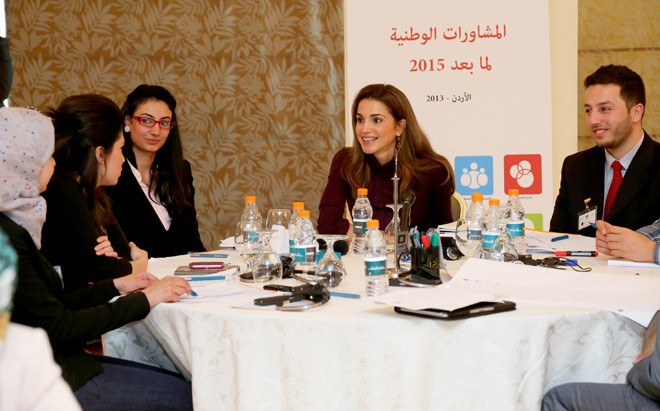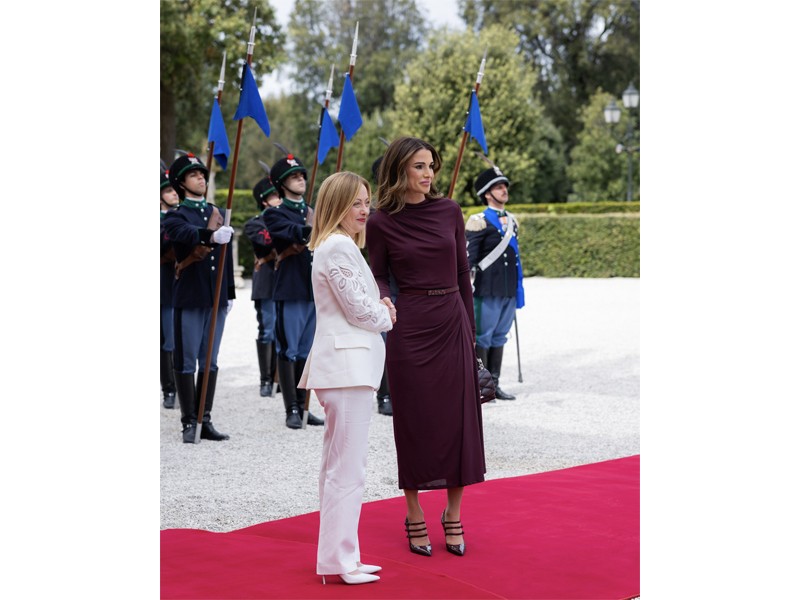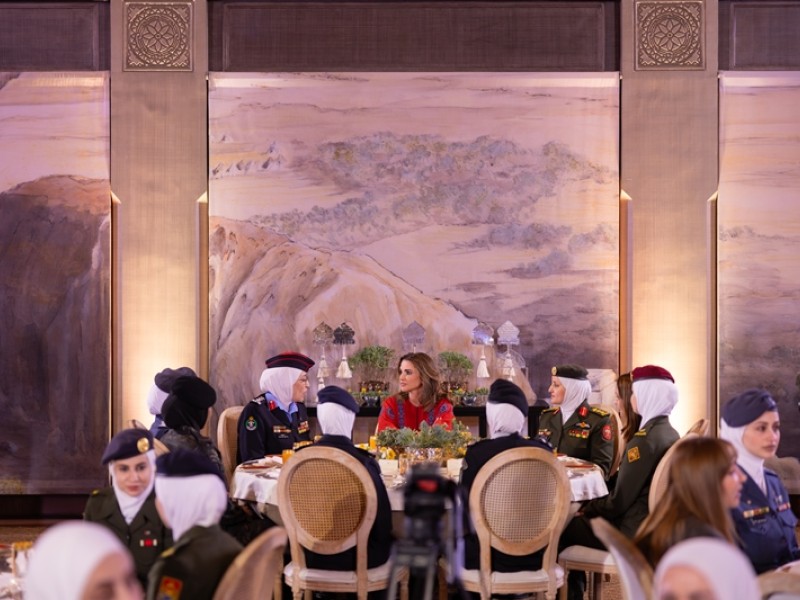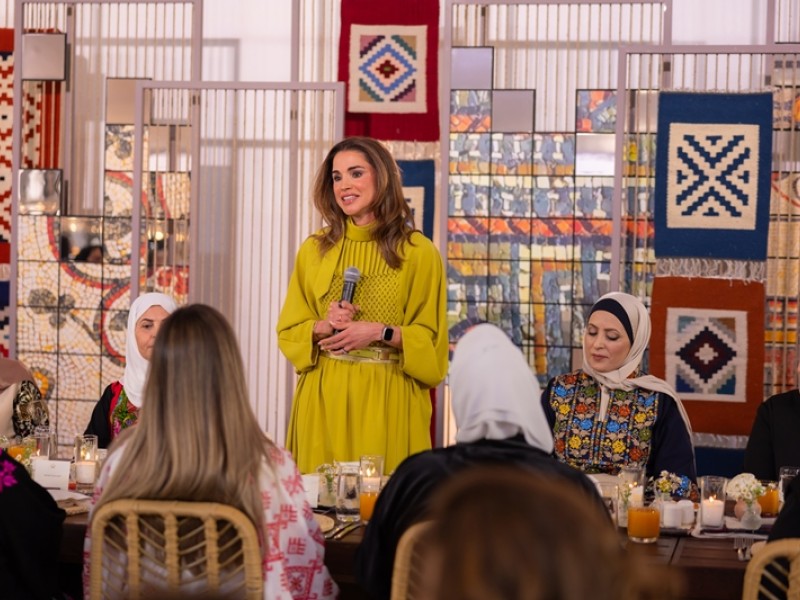Queen Rania Attends National Forum on Education Relevance to Workplace for Youth

(Office of Her Majesty, Press Department-Amman) Her Majesty Queen Rania Al Abdullah attended today part of a national forum on making education relevant to the workplace for youth in Jordan, one of a number of U.N.-led consultations in the country on the shape of the post-2015 global development agenda.
Her Majesty attended a roundtable discussion on the second day of the February 19-20 National Forum on educational relevance sponsored by the UNESCO office in Amman which brought together educators, student representatives, parents, civil society, government agencies, decision makers and U.N. officials, among others. The forum meetings included three thematic groups on general education, teacher training and preparation, and education curricula, which came up with a preliminary summary of five key outcomes.
“I am proud that we in Jordan focus on constructive dialogue; how to build for the future, how to improve our situation and how to upgrade the educational process,” said Her Majesty, who is a member of the U.N. High Level Panel (HLP) to advise on the shape of global development for after 2015, the target date for the expiry of the Millennium Development Goals (MDGs).
Her Majesty stressed the need to support the aspirations of youth and to empower them to be able to compete in the workplace, regionally and globally.
“I believe in the skills of our young people and with the quality of students graduating from our education institutions despite the challenges and limited resources,” she said, noting that such consultative gatherings should be held annually, and not just as part of the post-2015 development consultations.
“Every day through my work I see young people who have done things to make us very proud … they invent things, they develop things and this is something that characterizes Jordan and that we should safeguard … but this needs an effort on our part,” Her Majesty added.
Briefing Her Majesty on the outcomes of the discussion, General Manager of education consultancy CADER, Dr. Muhyieddeen Touq, said that they comprised the following priorities: catering to different talents and students’ needs, activating the accountability and appraisal system, ensuring adequate pre-service training for teachers, ensuring that teachers are qualified, flexible and open-minded, and updating the curricula in order to allow the teacher to use different teaching methods and connect education with real life.
“It was important for us that the recommendations be of the people and not the recommendations of closed rooms,” said Touq, who moderated the event, adding that the outcomes of the discussion will be included in a final report to help inform the post-2015 development agenda.
Anna Paolini, the Director of UNESCO Office – Amman thanked Her Majesty and the attendees for helping to create this opportunity to bring education to the center of the post -2015 development agenda. Addressing the forum, Paolini said: “You had a very sincere discussion, you were very enthusiastic and very interested by the topic and we have to listen to your aspirations .. We are here to learn from you and to listen to you.”
In an address on the forum’s first day, Paolini said that due to the dynamic role that it plays in various international arenas, Jordan has been selected among a sample of countries around the world to host national consultations on various thematic areas including education, in order to inform the ongoing global process of defining a universal and inclusive Development Agenda after 2015 that represents better the aspirations of the world’s citizens from the grassroots rather than solely from the elite.
“As the target date of 2015 for reaching the Millennium Development Goals (MDGs) approaches, the international community is actively taking stock of headways or setbacks encountered by countries on their way to achieving these universal goals,” Paolini said.
Jordan has made steady progress in improving access to compulsory education, in raising completion rates of primary education and eliminating gender disparities in education, she said. In 2010, the primary net enrollment rate was 91%, which places Jordan above the regional average, while youth literacy (age 15 to 24) is close to 100%.
“Most statistics clearly show that Jordan offers equal learning opportunities for males and females,” said Paolini, noting that “the King and the Queen’s personal commitments toward education have certainly contributed to such progress”.
But despite such significant achievements, she said that the quality of education remains uneven. For example, discrepancies persist between urban and rural areas, she said. Above all, the most worrying observation from the school system is the relevance of its outputs to the labor market, she noted.
“The Arab Spring has also brought our attention to similar frustrations among university graduates unable to find jobs to meet their aspirations,” Paolini said, noting that unemployment clearly remains a challenge for Jordan, especially among young people from 15-24 years of age.
Featured
Queen Rania's official website
This website does not support old browsers. To view this website, Please upgrade your browser to IE 9 or greater
Your browser is out of date. It has known security flaws and may not display all features of this and other websites. Learn how to update your browser



